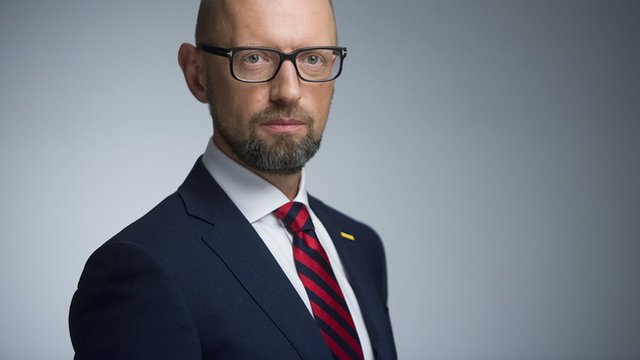Parliament could not contact Yanukovych in Feb 2014, his life was not in danger at that time - Yatsenyuk

People's Front Party leader and former Ukrainian Prime Minister Arseniy Yatsenyuk has said that the Verkhovna Rada office could not contact the administration of former Ukrainian President Viktor Yanukovych in February 2014, and in this regard Verkhovna Rada Speaker Oleksandr Turchynov started fulfilling the president's duties in accordance with the Constitution of Ukraine.
"In accordance with this agreement [the agreement with political parties, pursuant to this agreement, the Verkhovna Rada adopted a legislative act on the restoration of a parliamentary-presidential republic] and a public statement by then President Yanukovych, such an act of legislation was to be signed, but on February 22 all media showed Viktor Yanukovych's interview in which he said: 'I will not sign anything.' Thus, Yanukovych refused to sign this agreement," Yatsenyuk said, while giving testimony in Kyiv's Obolonsky District Court in the Yanukovych treason case on Monday, December 11.
"Despite this, the Verkhovna Rada office, according to my information, tried to contact both Yanukovych and his administration... None of the administration officials, including Yanukovych himself, said where they stayed and whether Yanukovych will return to perform his duties," he added.
According to Yatsenyuk, that is why the Verkhovna Rada, in a constitutional way, "in connection with the president's removal from performing his duties, decided to temporarily assign the president's duties to the Verkhovna Rada chairman."
When asked whether Yanukovych attempted to get into contact with Yatsenyuk in some way February 27, or vice versa, the People's Front leader said: "No, he did not contact me."
When asked whether there were any threats to Yanukovych's life and health at that time, in February-March 2014, which could objectively stipulate the need to leave Ukraine, Yatsenyuk recalled that state protection was granted to the president not only at the time of execution of his powers, but also for life.
"At that time, state protection numbered several hundred people. There was no information about any threat to the life and health of President Yanukovych, and, as far as I know, this is also confirmed by the fact that Viktor Yanukovych personally refused state protection," he said.
As reported, on June 29, 2017, Kyiv's Obolonsky District Court decided to consider criminal proceedings on charges against Yanukovych of high treason and a number of other crimes against the statehood of Ukraine under a special (absentee) procedure.
In the high treason trial, Yanukovych is accused of committing crimes under Part 5, Article 27 (an accomplice in a crime), Part 3, Article 110 (encroachment on the territorial integrity and inviolability of Ukraine, which led to loss of life or other grave consequences; it envisages imprisonment for a period of 7 to 12 years), Part 1, Article 111 (high treason; it envisages imprisonment for a period of 10 to 15 years), Part 2, Article 437 (conducting aggressive war or aggressive military operations; it envisages imprisonment for a term of 10 to 15 years) of the Criminal Code of Ukraine.
In February 2014, Yatsenyuk served as a people's deputy, leader of the Batkivschyna faction in the Verkhovna Rada of the seventh convocation. On February 27, he was appointed Ukraine's prime minister.










